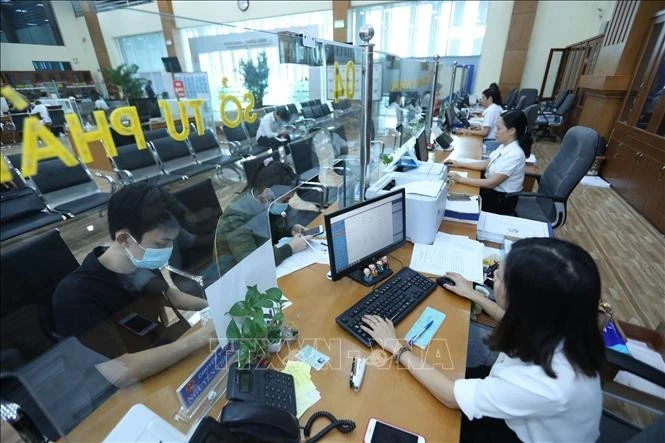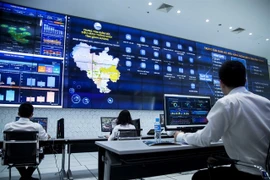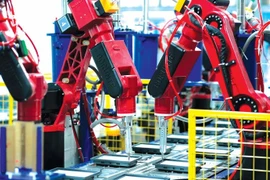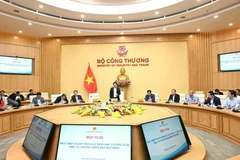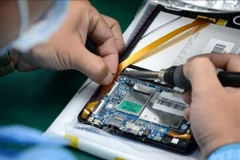Hanoi (VNA) - Entering 2025, Vietnam is gearing up to accomplish important goals in its digital transformation journey for economic development.
At the third meeting of the National Committee for Digital Transformation, Prime Minister Pham Minh Chinh described digital transformation as an inevitable trend and a objective requirement to keep pace with developed nations, and a top priority for rapid and sustainable development.
The Government, along with various ministries and agencies, has focused on building a legal framework and policies to improve the digital landscape. Key documents include the master plan on information and communication infrastructure, the national data strategy, the semiconductor industry development strategy, human resources development for the semiconductor industry, and the framework for Vietnam’s digital infrastructure.
In 2024, Vietnam made remarkable strides with the rapid launch of the national population database, ensuring seamless data connection across 18 ministries and 63 localities. This facilitated over 1.3 billion queries and more than 537 million data synchronisation actions by September 2024. Additionally, over 20 million electronic ID cards were issued, 8 million accounts were registered for accessing the online public service portal, and more than 14 million citizen records were integrated into the electronic health book.
According to the United Nations' e-government survey released in September 2024, Vietnam climbed to 71st place out of 193 countries and territories, up 15 places compared to 2022. This achievement underscored Vietnam's success in meeting its e-government goals for 2024.
As of October, over 82.4% of households were using fiber optic internet, up 3.3% year on year, surpassing the 80% target set for 2025. Additionally, more than 87% of the population used smartphones.
A major milestone in 2024 was the launch of the largest and most modern data centre by military-run telecom provider Viettel Group. This high-security data centre, equipped with advanced technology, will be crucial in safeguarding national data sovereignty and personal data in Vietnam.
Parallel to these development steps, Vietnamese technology companies are investing heavily in mastering key technologies of the digital age, including semiconductors, artificial intelligence (AI), and 5G chipsets.
By the end of 2024, Vietnam's achievements in digital transformation across the pillars of digital government, digital economy, and digital society laid a solid foundation for the country's ongoing digital journey, as outlined in the 13th National Party Congress’s Resolution./.
